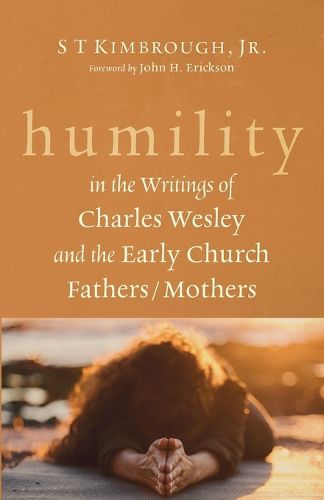Readings Newsletter
Become a Readings Member to make your shopping experience even easier.
Sign in or sign up for free!
You’re not far away from qualifying for FREE standard shipping within Australia
You’ve qualified for FREE standard shipping within Australia
The cart is loading…






This title is printed to order. This book may have been self-published. If so, we cannot guarantee the quality of the content. In the main most books will have gone through the editing process however some may not. We therefore suggest that you be aware of this before ordering this book. If in doubt check either the author or publisher’s details as we are unable to accept any returns unless they are faulty. Please contact us if you have any questions.
Humility is a central focus of the early church fathers/mothers. Similarly, it is at the heart of Charles Wesley's thought expressed in his poetry, sermons, and journal. For Wesley, humility plays an active role in the process of salvation. "It can but lead to faith," he says. For the fathers/mothers of the early church, salvation void of humility is unthinkable. For Wesley the words "humble" and "humility" pervade almost every aspect of Christian character, personality, and experience. A careful examination of Wesley's writings reveals congruences with and a close relationship to the thought of the early church fathers and mothers on the subject of humility. Throughout this study, examples from witnesses of the Eastern church emphasize the closeness of their thought with that of Charles Wesley. A careful comparative study is made of St. Basil the Great's "Homily on Humility" and Wesley's multiple references to humility in prose and poetry. This leads to an interesting response to the question: How does one practice humility? St. Basil says, "Everything that Christ did was a lesson in humility." This study suggests that in the cycle of the Christian year and the liturgical rehearsal of everything that Christ did, one learns to practice humility.
$9.00 standard shipping within Australia
FREE standard shipping within Australia for orders over $100.00
Express & International shipping calculated at checkout
This title is printed to order. This book may have been self-published. If so, we cannot guarantee the quality of the content. In the main most books will have gone through the editing process however some may not. We therefore suggest that you be aware of this before ordering this book. If in doubt check either the author or publisher’s details as we are unable to accept any returns unless they are faulty. Please contact us if you have any questions.
Humility is a central focus of the early church fathers/mothers. Similarly, it is at the heart of Charles Wesley's thought expressed in his poetry, sermons, and journal. For Wesley, humility plays an active role in the process of salvation. "It can but lead to faith," he says. For the fathers/mothers of the early church, salvation void of humility is unthinkable. For Wesley the words "humble" and "humility" pervade almost every aspect of Christian character, personality, and experience. A careful examination of Wesley's writings reveals congruences with and a close relationship to the thought of the early church fathers and mothers on the subject of humility. Throughout this study, examples from witnesses of the Eastern church emphasize the closeness of their thought with that of Charles Wesley. A careful comparative study is made of St. Basil the Great's "Homily on Humility" and Wesley's multiple references to humility in prose and poetry. This leads to an interesting response to the question: How does one practice humility? St. Basil says, "Everything that Christ did was a lesson in humility." This study suggests that in the cycle of the Christian year and the liturgical rehearsal of everything that Christ did, one learns to practice humility.